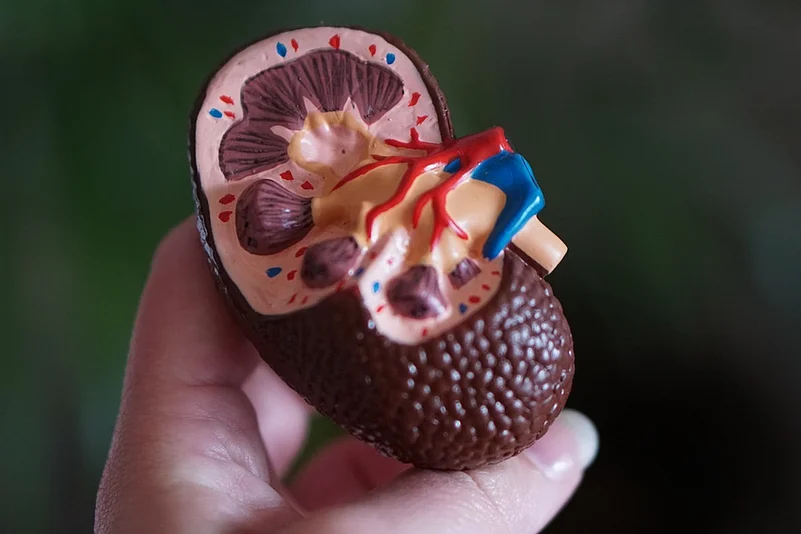The kidneys are vital organs, flushing out toxins from the body. They play a vital role to keep the body healthy and clean. If something is wrong with them, the rest of the body suffers, too. While there are many conditions that could affect the normal functioning of kidneys, there is no single eating plan that is right for everyone with kidney disease. What you can or cannot eat will change over time, depending on how much kidney function you have and other things, like having diabetes, cancer etc.
Making healthy food choices is important for all of us, but it is even more important if you have chronic kidney disease (CKD).
Advertisement
What are the basics of good nutrition?
A healthy eating plan gives you the right amount of:
- Protein
- Calories
- Vitamins
- Minerals
Watch out for protein intake
Protein is an important nutrient. Body needs protein to help build muscle, repair tissue, and fight infection. But if you have kidney disease, you may need to closely watch the protein you eat to prevent protein wastes from building up in your blood. That helps your kidney to sustain longer.
Uncertainties are subjected on your stage of kidney disease, amount of nutrition, muscle mass, and other things. Always keep in mind to balance your protein intake.
Advertisement
Your dietitian can guide you understand how to maintain good nutrition and eat the accurate amount of protein to support your kidneys.
Cut the sodium
Sodium is a mineral found in most foods. It is also found in table salt. Sodium can affect various issues like blood pressure and water balance in your body. Healthy kidneys can control sodium. But if your kidneys do not work well, sodium and fluid build up in the body. This can cause high blood pressure and other problems, like swelling of ankles, fingers, or eyes.
Don’ts
-Limit sodium by avoiding table salt and foods such as seasonings like soy sauce, sea salt, teriyaki sauce, garlic salt or onion salt.
-Most canned and frozen foods (check the label)
-Processed meats such as ham, bacon, hot dogs and sausage
-Salted snack foods, like chips and crackers
* Your dietitian can teach you how to choose foods that are lower in sodium. Knowing how to read food labels can help you choose right foods with less sodium.
Do’s
-Learn to read food labels so you know what you are eating. Reading labels can help you shop for foods with lower sodium and to check for "added" nutrients that may be bad for you.
-Try fresh or dried herbs and spices instead of table salt to bring out the flavor of foods.
Advertisement
Reduce Your Potassium Intake
This mineral makes your nerves and muscles work efficiently. But when you have kidney disease, your body can’t filter out extra potassium.
Don’ts
When potassium level is high in blood, it can lead to many serious health problems.
Avoid potassium-rich foods like bananas, potatoes, avocados, oranges, raw carrot, green leafy vegetables, tomatoes etc.
Do’s
Consult your dietician to understand low potassium foods and how to include it in your diet by various ways.
Monitor the phosphorus:
Phosphorus is an active mineral found in various foods. Large amount are found in nuts, milk and milk products and beans.
Advertisement
Don’ts
Eating foods high in phosphorus will raise the phosphorus in blood and cause calcium to be pulled from bones. This will make bones weak. Hence these foods should be restricted in the diet.
-Limiting dairy products to 300ml/day will help one keep a check on the phosphorus levels.
What about fluids?
If you have early-stage of kidney disease, you probably don’t need to cut back on fluids. But if your condition gets critical, your doctor will get to limit those too.
Don’ts
-Avoid salty foods.
-Avoid fruit juices and coconut water
-Limit the intake of tea and coffee
Do’s
Advertisement
-Manage your thirst with sugar-free alternatives like hard candies, ice chips, or frozen grapes.
-Track your fluid in a diary or with a marked container.
(The author is a clinical dietician, Masina Hospital, Byculla. Views expressed are personal.)




















